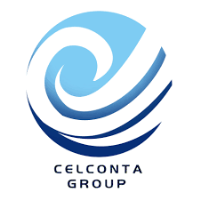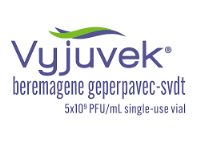I’m Pedro Silva Couto, and this blog combines content from my personal blog, Cell and Gene Therapy Today, together with data from my membership on the team at CellTrials.org.
Recent clinical trials of note within the cell and gene therapy space
 NCT06724835 was registered by Shenzhen Celconta Life Science Co. Ltd. (aka Celconta Life), a branch of the Celconta Group. This trial aims to study the safety and efficacy of an anti-Nectin-4 CAR-T product in solid tumors, for patients suffering from Nectin-4-positive advanced breast cancer. This phase 1, open-label, single-arm clinical trial aims to assess the performance of the autologous therapeutic in 18 patients using a dose escalation strategy. However, the specific doses were not disclosed.
NCT06724835 was registered by Shenzhen Celconta Life Science Co. Ltd. (aka Celconta Life), a branch of the Celconta Group. This trial aims to study the safety and efficacy of an anti-Nectin-4 CAR-T product in solid tumors, for patients suffering from Nectin-4-positive advanced breast cancer. This phase 1, open-label, single-arm clinical trial aims to assess the performance of the autologous therapeutic in 18 patients using a dose escalation strategy. However, the specific doses were not disclosed.
This study adds to the extensive clinical pipeline of the Celconta Group, which encompasses three branches.
1. Celconta Life develops cellular immunotherapy for solid tumors, utilizing either CAR-T or CAR-NK cells developed with their proprietary technology.
2. Dongguan Life Bank in Dongguan City, Guangdong Province of China. This bank stores newborn cells from the umbilical cord and placenta, as well as adipose-derived cells from adults.
3. Dongguan Zalijan Biotechnology focuses on developing cell therapy treatments for osteoarthritis and diabetic complications.  NCT06731933 is a clinical trial registered by the Stanford University team led by Kunju Sridhar, PhD, and Peter Marinkovich, MD. This trial aims to treat cancer with the FDA-approved in-vivo gene therapy Beremagene Geperpavec (B-VEC, or brand name Vyjuvek). This topical gene therapy was developed for patients that suffer from the rare genetic condition Epidermolysis Bullosa. Patients with Epidermolysis Bullosa have very fragile skin that blisters and tears easily. The B-VEC gene therapy helps their skin to heal by introducing a working copy of the human COL7A1 gene that enables the skin to prduce collagen. The therapy is delivered by modifying the Herpes Simplex Virus (HSV) to carry a copy of the COL7A1 gene.
NCT06731933 is a clinical trial registered by the Stanford University team led by Kunju Sridhar, PhD, and Peter Marinkovich, MD. This trial aims to treat cancer with the FDA-approved in-vivo gene therapy Beremagene Geperpavec (B-VEC, or brand name Vyjuvek). This topical gene therapy was developed for patients that suffer from the rare genetic condition Epidermolysis Bullosa. Patients with Epidermolysis Bullosa have very fragile skin that blisters and tears easily. The B-VEC gene therapy helps their skin to heal by introducing a working copy of the human COL7A1 gene that enables the skin to prduce collagen. The therapy is delivered by modifying the Herpes Simplex Virus (HSV) to carry a copy of the COL7A1 gene.
The B-VEC in-vivo gene therapy received FDA approval in August 2023 after a phase 3 clinical trial NCT04491604 filed by Krystal Biotech. In that phase 3 trial, patients with Epidermolysis Bullosa reported complete wound healing in 67% of the wounds exposed to B-VEC, as compared with 22% of those exposed to placebo at the 6-month evaluation time point.
The latest trial at Stanford will test the ability of B-VEC to reduce the recurrence of squamous cell carcinoma in patients with Recessive Dystrophic Epidermolysis Bullosa. This phase 2, open-label, placebo-controlled clinical trial aims to enroll 16 patients and is currently recruiting in the US and Italy.
 NCT06731192 was registered in China by the Guangzhou Women and Children's Medical Center. The clinical trial aims to use umbilical cord tissue-derived human mesenchymal stromal cells (UCT-hMSCs) to treat Alport syndrome, a rare genetic disorder that causes chronic kidney disease. Patients will receive two intravenous infusions of 1x106 cells/kg. The trial is phase 2/3, placebo-controlled and randomised, and plans to enroll 40 patients. Since Alport syndrome is characterised by damage to small blood vessels within the kidneys, efficacy of the treatment will be measured with metrics of kidney function, including urine protein remission rate, hematuria remission rate, and renal function improvement rate. Although the authors have not put forward the predicted mechanism of action for the hMSCs, they seem to focus on the pro-angiogenesis properties of hMSCs.
NCT06731192 was registered in China by the Guangzhou Women and Children's Medical Center. The clinical trial aims to use umbilical cord tissue-derived human mesenchymal stromal cells (UCT-hMSCs) to treat Alport syndrome, a rare genetic disorder that causes chronic kidney disease. Patients will receive two intravenous infusions of 1x106 cells/kg. The trial is phase 2/3, placebo-controlled and randomised, and plans to enroll 40 patients. Since Alport syndrome is characterised by damage to small blood vessels within the kidneys, efficacy of the treatment will be measured with metrics of kidney function, including urine protein remission rate, hematuria remission rate, and renal function improvement rate. Although the authors have not put forward the predicted mechanism of action for the hMSCs, they seem to focus on the pro-angiogenesis properties of hMSCs.
Guangdong province has the highest birthrate in China, with over 1 million births per year. The Guangzhou Women and Children's Medical Center is the leading hospital in the province for maternal and child health, and hosts one of China's largest cord blood banks.  NCT06741098 is an industry-sponsored clinical trial registered by Nuwacell Biotechnologies (Hefei, China). This study puts forward iPSC-derived human mesenchymal stromal cells (NCR100) for knee osteoarthritis. Patients in the study will receive multiple intra-articular injections, but the dose is not specified. The trial is a phase 1/2 randomised and placebo controlled clinical trial that aims to enroll 162 patients. The Nuwacell product pipeline is based on proprietary technology to create induced Pluripotent Stem Cells (iPSC). Their pipeline includes cell therapies for regenerative medicine, anti-inflammatory repair, and tumor immunotherapy. Nuwacell, established in 2016, claims to have a unique pool of 30 iPSC donors covering 50% of the Chinese population.
NCT06741098 is an industry-sponsored clinical trial registered by Nuwacell Biotechnologies (Hefei, China). This study puts forward iPSC-derived human mesenchymal stromal cells (NCR100) for knee osteoarthritis. Patients in the study will receive multiple intra-articular injections, but the dose is not specified. The trial is a phase 1/2 randomised and placebo controlled clinical trial that aims to enroll 162 patients. The Nuwacell product pipeline is based on proprietary technology to create induced Pluripotent Stem Cells (iPSC). Their pipeline includes cell therapies for regenerative medicine, anti-inflammatory repair, and tumor immunotherapy. Nuwacell, established in 2016, claims to have a unique pool of 30 iPSC donors covering 50% of the Chinese population.  NCT06737380 is an industry-sponsored clinical trial registered by LiveKidney.Bio, an Israeli company that is developing a proprietary delivery platform for cell therapies which relies on a biodegradable hydrogel formulation. The pharmaceutical grade hydrogel is used to carry injectable umbilical cord tissue-derived tissue-derived human mesenchymal stromal cells (UCT-hMSCs). The conditions in their pipeline are chronic kidney disease and systemic lupus erythematosus (SLE). The current trial for SLE patients is unusual in that the UCT-hMSC are administered via subcutaneous injection. The exact dose is not specified. It is a phase 1, open-label clinical trial that aims to enroll 10 patients. The study will monitor for adverse events and will assess the immunomodulatory capabilities of UCT-hMSC by taking blood and urine samples to measure a panel of cytokines at baseline and during follow-up visits.
NCT06737380 is an industry-sponsored clinical trial registered by LiveKidney.Bio, an Israeli company that is developing a proprietary delivery platform for cell therapies which relies on a biodegradable hydrogel formulation. The pharmaceutical grade hydrogel is used to carry injectable umbilical cord tissue-derived tissue-derived human mesenchymal stromal cells (UCT-hMSCs). The conditions in their pipeline are chronic kidney disease and systemic lupus erythematosus (SLE). The current trial for SLE patients is unusual in that the UCT-hMSC are administered via subcutaneous injection. The exact dose is not specified. It is a phase 1, open-label clinical trial that aims to enroll 10 patients. The study will monitor for adverse events and will assess the immunomodulatory capabilities of UCT-hMSC by taking blood and urine samples to measure a panel of cytokines at baseline and during follow-up visits.